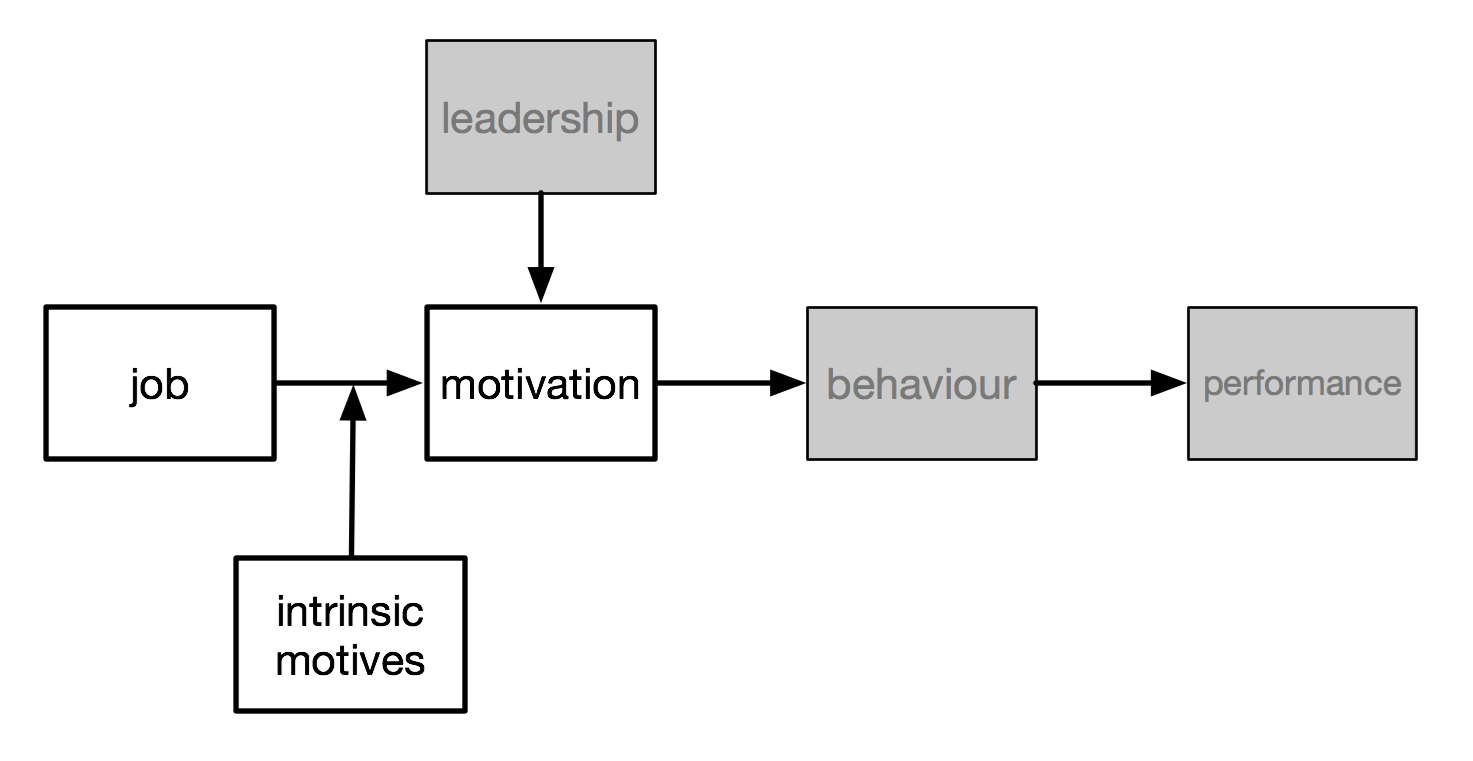One of several papers on training and development
Why some people are developable and others not
Written by John Berry on 1st December 2017. Revised 16th November 2020.
6 min read
 It’s a simple enough question: why is it that some staff strive to grow and achieve great things while others seem happy to come in, do the basic job and go home without ever a thought about doing more?
It’s a simple enough question: why is it that some staff strive to grow and achieve great things while others seem happy to come in, do the basic job and go home without ever a thought about doing more?
Managers lament this state. If everyone would strive, their achievements would drive business outcomes. And if only managers could get everyone striving for personal growth, the organisation would grow its capability. Achievement and growth are key to sustainable business so it’s in everyone’s interest that all strive.
So what’s to be done? How can managers get everyone to reject the status quo and seek advancement?
Defining motivation
Why people strive is in the definition of motivation itself.
Motivation is defined as the in-person process that gets us going, drives what we work on and how much effort we put in. It eventually determines when we change the direction of that effort and ultimately stop doing whatever it is we’re doing and do something else.
Motivation is like a control loop set to maximise the sought-after mental states of meaningfulness, responsibility and knowledge of results. It does this by selecting and optimising our efforts on some activities whilst rejecting others.
This definition of motivation is important and perhaps gives us the first clue to why some strive and others don’t – those who don’t strive are not motivated. There’s nothing to get them started or to motivate them to continue.
If motivation is what gets a person going, managers need to motivate each member of staff towards striving – towards stuff that causes personal growth and achievement.
Job as motivator
It’s well established that the greatest motivator is the job a person does. So conceptually, give a person an exciting job and they’ll strive.
But whilst useful, this still doesn’t explain why some strive and others don’t – even those doing the same job differ in their striving so it can’t be all about the job.
The second clue is in the very word “exciting”. What’s exciting for one person is not exciting for another. The critical issue here is that the characteristics of the job must match the intrinsic motives of the jobholder. If there’s a match, the job will motivate. If there’s no match, the intrinsic motives will moderate and reduce the job’s motivating potential. It’s not that the jobholder has no intrinsic motives – it’s just that they don’t have the intrinsic motives triggering striving in their present job. They find other things “exciting”.
Growth need strength
Intrinsic motives are socially acquired needs activated by a desire for fulfilment – for meaningfulness, responsibility and knowledge of results. So intrinsic motives are socially constructed – formed in a person’s upbringing, adolescence and adulthood in the environment in which they work and play. They’re acquired through experience.
One aspect of intrinsic motives is growth need strength (GNS). GNS is the strength of the person’s need for personal fulfilment, learning and development. If GNS is high, the right job will have the capacity to motivate. If GNS is low, this will block the motivating potential of the job. So high GNS is desirable in all. This model is shown adjacent.

The psychologist David McClelland argues that the need for achievement (embodied in intrinsic motives and GNS) can be learned. This is a rather fundamental idea that’s employed by teachers. Teachers learn how to change the mind-set of students over time. Arguably, if mind-sets can’t be changed, and if there’s no link between mind-set and achievement need, and then between achievement need and motives and ultimately motivation, teachers would be on a hiding to nothing! Only those students naturally gifted with achievement need would come out of the schools system with any success – and we know that this is just not so.
Changing minds
A recent study from the education world suggests that teacher interventions can encourage the same growth mind-set that managers seek in their staff[1]. On this basis, GNS can be manipulated. It’s socially constructed and can be acquired in a social group. And managers can intervene to have their staff acquire higher GNS.
The central question then is how? How does a manager change an employee’s mind-set to have them strive to improve and achieve?
Actually, it’s simple enough. The explanation is in a concept called social constructivism. Social constructivism posits that human development is socially situated and knowledge is constructed through interaction with others. So the idea of growth and advancement must simply be shared within the staff body.
Of course, there’s more to it than this. It’s not just a case of the manager saying “OK, everyone, you must strive to grow and achieve”. Such sentiment is forgotten the day after it’s said. Growth must become inherent in the firm. It must become part of the fabric, part of the culture. It must become normal for everyone.
Universal growth
So here are some ideas about how this might be done:
- The CEO must strive to achieve and news of his or her growth achievements must be widely heralded.
- There must be kudos (such as promotion and congratulations) for all who accede to the desired norm and achieve personal growth.
- Managers must follow the CEO’s lead and themselves sign up to the norm and their successes must be heralded.
- All new hires must be selected for their GNS and for intrinsic motives supporting growth and achievement.
- Team briefings and other collective activities must continually discuss and reward individual and group progress in personal growth.
- Managers must work with every member of staff to put in place personal development plans – and then monitor and encourage progress.
- The financial burden for personal achievements and growth should be borne by the firm.
So to conclude, first a job excites giving motivation potential. Then it motivates and the person strives for achievement and growth. But this only works if everyone is talking about it and everyone’s doing it!
- Claro S, Paunesku D & Dweck C (2016) Growth mindset tempers the effects of poverty on academic achievement, Proceedings of the National Academy of Sciences of the USA available at http://www.pnas.org/content/113/31/8664.full accessed on 22nd November 2017.